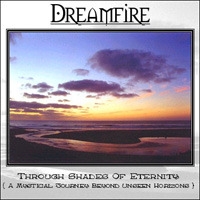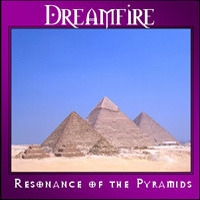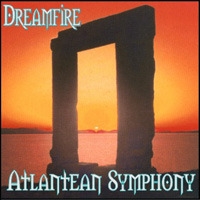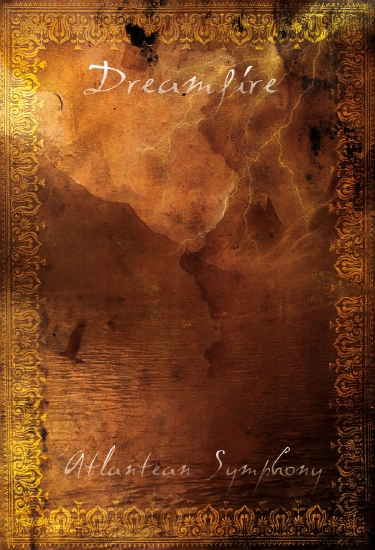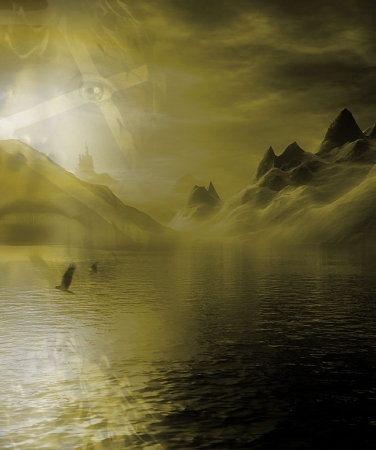|

Note: As the English composer prefers to remain anonymous, he has answered as Osirion, a blend of Osiris and Orion, his musical writing name for Dreamfire.
Osirion, please reveal something about your personal and musical background
I’ve been a huge music fan for most of my life, and music is undoubtedly the biggest passion in my life. My first real interest in music was the rock and metal scene back in the ‘80s, it was a really great time when music felt genuinely fresh and exciting. That’s what inspired me to get my first instrument, an electric guitar – which I have played for over 20 years now, on and off. Of course, my formative musical tastes weren’t all guitar based, I’ve always had a keen interest in classical music; the more epic end of things in the shape of Shostakovich, Wagner and Mussorgsky in particular.
Also, from seeing the incredible “Blade Runner” film, with its haunting and deeply immersive soundtrack from Vangelis, my interest in electronic music was awakened. The beautiful textures he created were unlike anything I’d experienced, and I suppose that, in some way, stayed somewhere in the inspirational and creative part of my mind, and many years later, helped in the evolution of Dreamfire.
How did the early days of Dreamfire look like?
Dreamfire was born as I found that just being a guitarist wasn’t fulfilling my creative side. A friend of mine in the latter half of the ‘90s was writing a lot of keyboard material, so after spending some time speaking with him, and exploring what synths could really do, a new world slowly began to unfold before me. I rushed out and bought a Korg M1 – a real classic instrument, my first keyboard. From there I was hooked, and soon upgraded to a Korg 01Wfd – the instrument on which I wrote the three Dreamfire demos between 1999 and 2001. I spent a couple of years writing material and becoming comfortable within this new musical medium, before Dreamfire really began to take shape, and I began to see the path that I wanted to follow open up before me.
What can you tell about the initial steps on unfolding the Dreamfire-concept and recording its three demos over the years
Dreamfire was always going to be a deep exploration on many levels. It really is one of those things that you know inside yourself that you have to do; there are places you have to explore, and music is the medium through which I channel my feelings, experiences and emotions. As the Chinese philosopher Lau Tzu said, “Music in the soul can be heard by the universe”, which is a perfect epithet for the energy I create with Dreamfire.
As with all things, a beginning sees the first faltering footsteps on a journey, and it took time to begin to find the style that would be manifest into Dreamfire.

The first demo, “Through Shades Of Eternity (A Mystical Journey Beyond Unseen Horizons)”, was essentially three individual musical pieces, all different in style, that paved the way into the Dreamfire world.

The following year, “Resonance Of The Pyramids” really took the immersive side of Dreamfire into an entirely new dimension with its hypnotic and unfathomable depths. And after that in 2001, “Atlantean Symphony” made things more expansive and epic in style.

From those three demo recordings, I drew all the aspects together, found where I was heading and eventually, some years later, began work on the debut “Atlantean Symphony” album.
Why does the final outcome on cd sound rather different from those early recordings
There really is no comparison between the early demos and the release of “Atlantean Symphony”. There was around 11 years between the last Dreamfire demo, and the release of the album. So, of course, there are some obvious changes in terms of the technology that is available for recording now, compared to back then, so on the surface level the sounds are entirely different. Plus, on a deeper level, I was over a decade older, and had grown so much as a person over that time, and this reflected greatly in the music I found I was able to create. And of course I also had over a decade more writing experience too.
The demos were like the first sketch an artist does when planning a piece of art. The album is built on those initial ideas and concepts; ideas that were continually worked upon, re-examined, re-written, re-explored, until finally, after much soul searching, and more hours than I care to mention, the debut album was finally completed.

I was rather surprised to find a cd-r in the lavished illustrated and beautifully designed cd-package, and not a factory-pressed cd….
Firstly, I’m glad you appreciate the design work that went into the visual concept of the album. It reflects the thematics of the music beautifully, and trying to do something on just a standard jewel case format wasn’t ever going to work, so the antique style book pressing was definitely the way to go. I’m also very pleased with how it all turned out.
As a huge collector of vinyl and cds myself, I never wanted to do a “download only” option. I think a release is missing an essential piece of the jigsaw when people only have a collection of digital files on a hard drive, so to me a beautiful package to illustrate and complement the music is vital.
I spent a long time deciding on the best option for the physical release, and being such an avid collector, especially of special editions, I though that if I would be happy to pay for it and own it myself, then that would be a good indicator that I have done what I set out to achieve with the physical release.
So, within the natural fiscal constraints of putting everything out myself, I managed to source a company that could do a fantastic job at a price that meant I didn’t have to sell a kidney (or two!). And the standard of professional factory pressed cd-rs is incredible these days. It is still a very expensive way to put out an album replete with fantastic packaging like this, but being able to press in the smaller quantities that cd-rs allow made the whole thing possible.
…. the previous matter brings me to the state of the music industry these days, piracy etc. What are your thoughts about this?
The music industry these days is at its lowest ebb ever. Piracy is killing labels, and denying artists, especially small artists, the opportunity to re-invest in their art. For most artists, it’s not about buying a second yacht or a third home, it’s about being able to repress your album, to pay your bills, even to eat in some cases. It’s crazy how far things have gone in just a few short years. And a few pounds here and there really does make all the difference to small artists.
Also, what is worse is that people can download so much in a day it would take them a year to listen to it all just once. There’s just no connection with the music in such immediate and vast quantities, which in my opinion is actually more of a crime than the act of piracy itself. And really, if the music is not important to these people, then why steal it in the first place?
Back in my student days, before the proliferation of the internet, I could maybe afford to buy one or two albums a month. So, I ensured that the albums I spent my few spare pounds on were of great importance to me. I played them to death, and had a real emotional attachment to the music, the art, and to the creative process that went into them. And looking back over the years, it’s those albums that remain the most important in my collection today. They are part of what made me into the person I am today.
If you download 500 albums in an afternoon, how do you ever get to really appreciate anything? A music collection should be representative of your life, good times and bad; something that grows with you throughout your life, and is in many ways is a mirror to yourself.

….and finally, what is coming next from Dreamfire?
I took a little time out after completing the album as I was totally drained as an artist. But at the moment I am re-visiting the other two Dreamfire demo recordings, and am working on them with a view to doing something similar to what I did with the “Atlantean Symphony” demo – a complete re-working of the concept to bring those initial musical sketched and ideas to life.
I also have some additional ideas that I am working on at the same time, so expect something new from Dreamfire in 2013. Quite what will come out next I don’t know yet, it depends where the creativity seems to naturally channel itself at this point in my life. But one thing is for sure, the Dreamfire realm will continue to grow, and I hope some of your readers will join me on this journey into the very deepest parts of the soul, and beyond.
Discography:
•”Through Shades of Eternity” (A Mystical Journey Beyond Unseen Horizons) (demo) (1999)
•”Resonance of the Pyramids”(demo)(2000)
•”Atlantean Symphony” (demo)(2001)
•”Atlantean Symphony”(full album; 2012)
Website: www.dreamfiremusic.co.uk |


